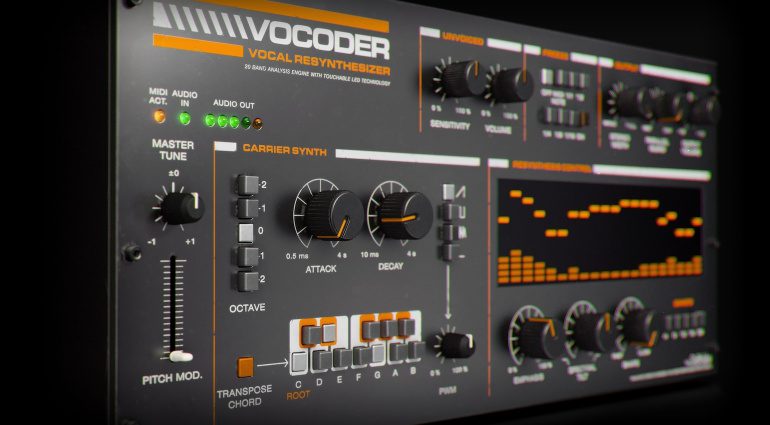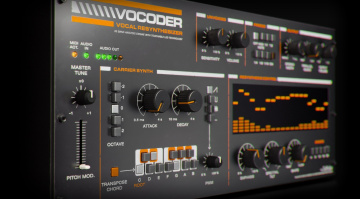Vocoders provide a unique sound that can give your productions a retro edge. We explore some of the best vocoder plugins for your DAW.
The vocoder was first invented by Bell Laboratories back in 1928 and intended for military communications. The idea was to reduce the bandwidth of the human voice so that the signal could be transmitted over greater distances.
However, the early vocoder designs offered poor speech intelligibility and were never put to use for anything besides sending encoded messages during WWII. The vocoders we know began to creep into synth designs in the 1950s.
The Best Vocoder Plugins
Vocoders encode a modulator signal, which is usually the human voice, into a range of adjustable frequency bands that correspond to a bank of band-pass filters. The harmonic carrier signal (a synthesizer or guitar) then passes through the filter bank, imprinting the character of the voice onto it.
This unique effect was famously used in recorded music from the 1960s onwards by artists like Kraftwerk, Phil Collins, Daft Punk, and many others.
Most popular DAW software systems include their own vocoder plug-ins, so be sure to explore these before investing in 3rd-party software. You’ll also find great vocoders inside virtual analogue synths like the microKORG and the Access Virus TI2.
TAL Vocoder
The TAL Vocoder is a free vintage-style vocoder plug-in with 11 frequency bands that captures the sounds of vocoders from the early 1980s. For easy familiarization with the interface, the controls are clearly laid out into two sections.
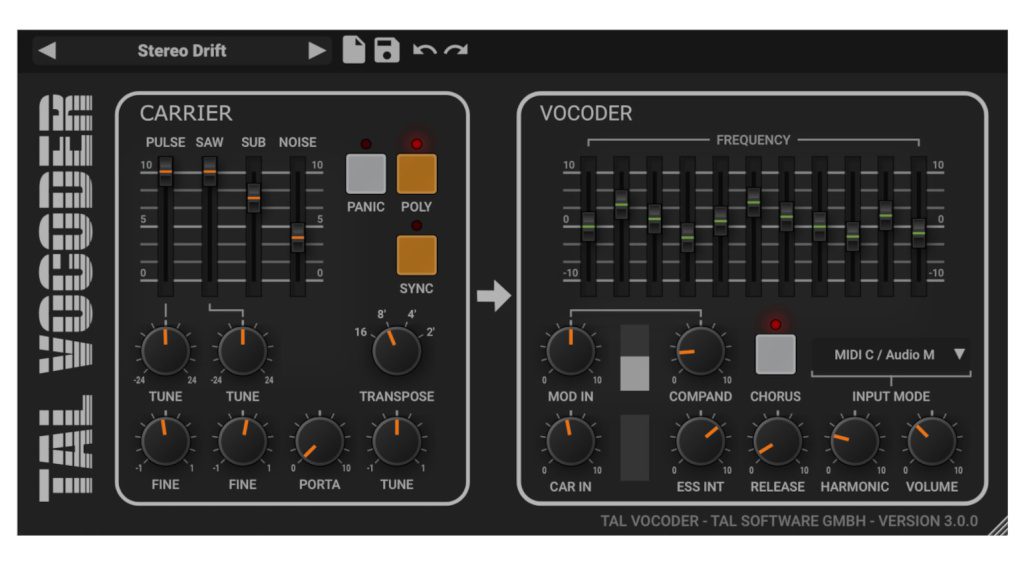
Within the Carrier section, you’ll find a polyphonic subtractive synthesizer with two individually tunable waveforms (pulse and sawtooth), a sub-oscillator, and a noise oscillator for adding texture.
Meanwhile, the Vocoder section lets you shape the range of your signal with the 11 frequency bands. Furthermore, you can set the input mode, adjust the modulator and carrier input signals, and add a chorus effect to widen the stereo.
Waves Morphoder
The Waves Morphoder is certainly nothing new, but it’s still able to produce the wonderfully textured, glistening vocoder sounds that we all love. For starters, the built-in polysynth can be used separately, and it has 10 preset operating modes.
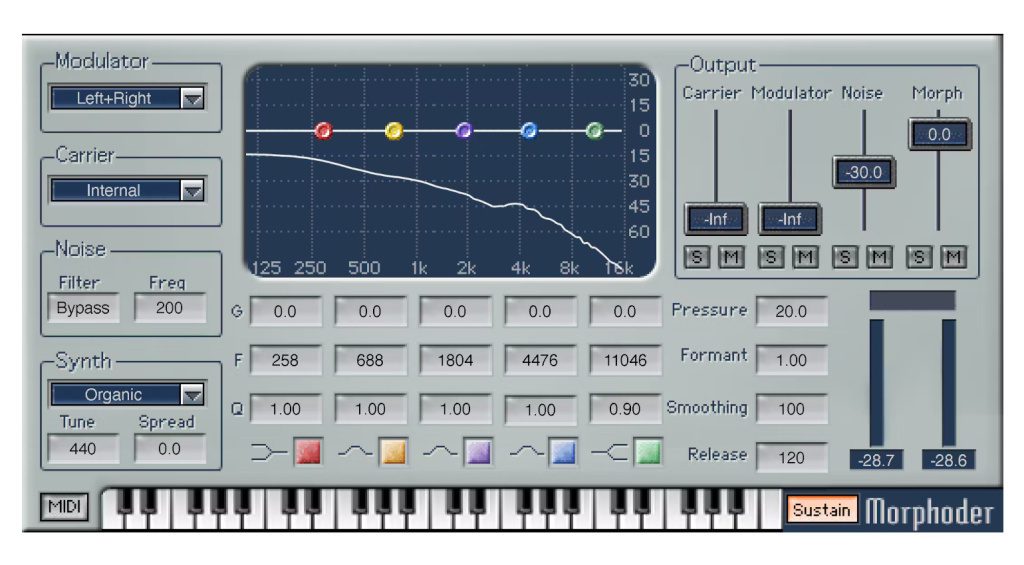
With the 5-band parametric EQ, you can shape the sound precisely, and there are additional controls for Pressure, Formant, Smoothing, and Release. Meanwhile, the output mixer section gives you the potential to layer sounds.
Here, you’ll find individual faders for your carrier and modulator signals, as well as the noise oscillator (which has a variable filter) and morph signal. Overall, the Morphoder offers a good deal of sonic potential at an affordable price.
iZotope VocalSynth 2
VocalSynth 2 is an extremely versatile effects processing plug-in, providing five different vocal processors and an effects section with seven effects. Each processor module can be deactivated, allowing precise layering and controls for sound shaping.
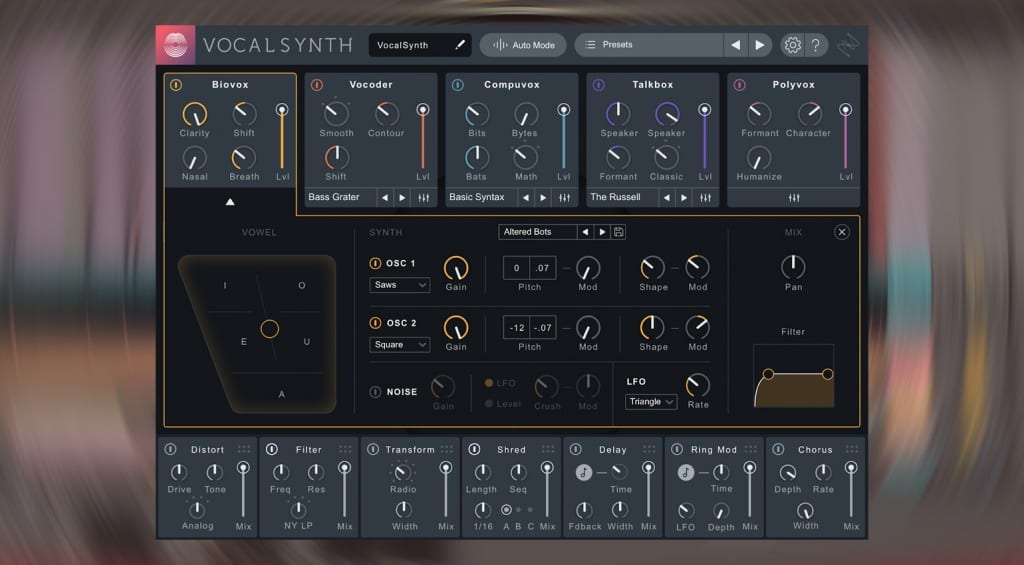
In use, Vocalsynth 2 has three different input modes: Auto mode, for processing as an insert effect, MIDI mode for use as a MIDI-controlled effect, and Sidechain mode for using an external carrier signal.
In addition, the pitch engine provides pitch correction and a voicing section for harmonic layering. Overall, VocalSynth 2 provides a great platform for vocal production, and it’s easy enough for a beginner to use.
Softube Vocoder
The Softube Vocoder brings together the crystalline sound of classic 1970s vocoders and the intuitive workflow of a modern plug-in. For a vocoder, the onboard 6-voice carrier synth offers an impressive range of waveforms with PWM and chord transpose functions.
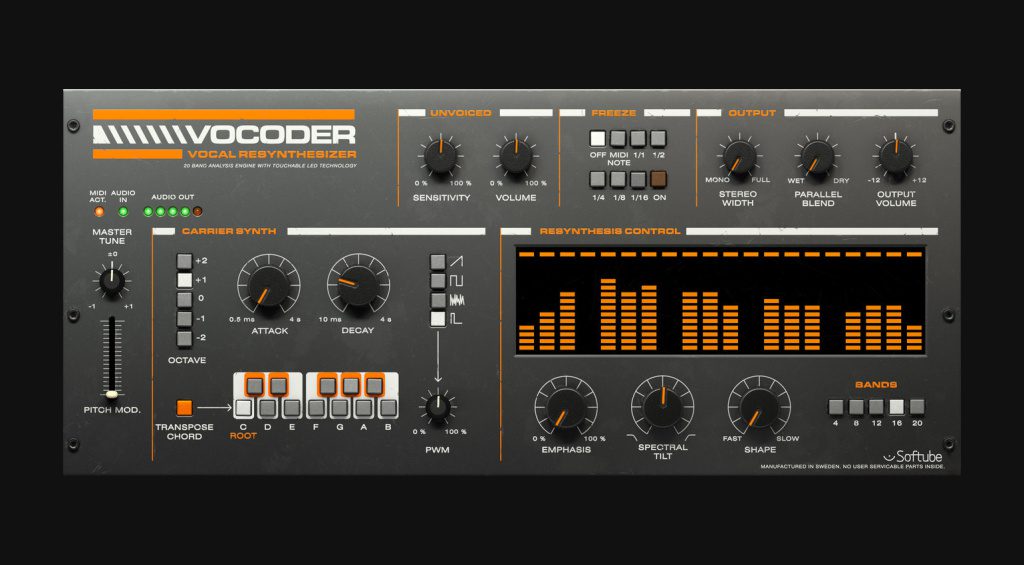
In addition, the freeze function has the ability to follow MIDI notation or five preset note divisions. Meanwhile, the main resynthesis control has 4, 8, 12, 16, and 20-band modes and you can easily shape the sound by simply dragging over the faders.
Furthermore, you can sculpt the sound to fit your mix with the emphasis, spectral tilt, and shape controls. Overall, the Softube Vocoder is a great combination of vintage emulation and modern innovation.
Zynaptiq Orange Vocoder
If you’re looking for a plug-in that goes beyond the creation of vintage-style vocoder sounds, the Zynaptiq Orange Vocoder is a powerful professional sound design tool. Based on the revered Prosoniq Orange Vocoder, you have access to 24 different vocoding algorithms.
Its extensive synthesis engine provides unison and mono-legato modes, with thru-zero linear FM, and advanced modulation capabilities. Moreover, the pitch quantizer is MIDI-controlled with five different operating modes.
Overall, the Orange Vocoder is as good as it gets, allowing you to create unique rhythmic sounds with depth and character. However, if it’s too much machine, try the Orange Nano, a scaled-down and more affordable version.
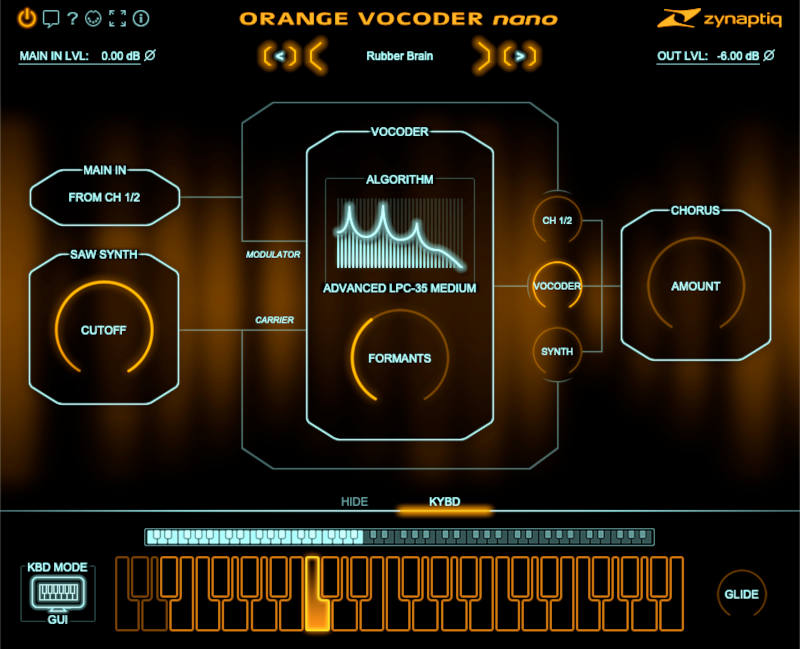
Also worth checking out:
More about the Best Vocoder Plugins:
*Note: This article about the best vocoder plugins contains affiliate links that help us fund our site. Don’t worry: the price for you always stays the same! If you buy something through these links, we will receive a small commission. Thank you for your support!

